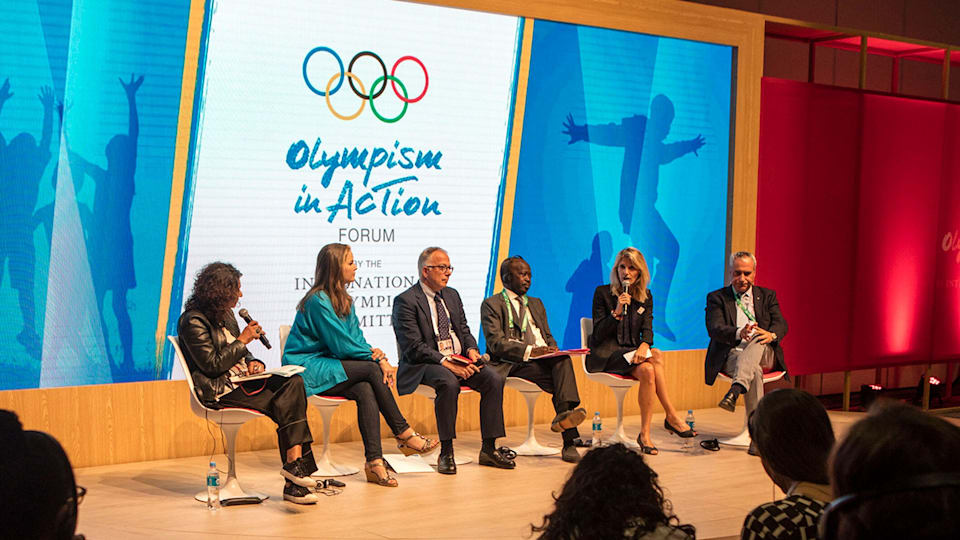Human Rights and Sport
As the world celebrates the 70th anniversary of the Universal Declaration of Human Rights this year, it is more important than ever to ensure that the Olympic Games and sport in general continue to be an expression and promoter of human rights, from their inclusiveness of all to the specific conditions under which Games venues are constructed, for example.

Human rights were a main topic of inquiry at the Olympism in Action Forum, with representatives from the Olympic Movement and human rights organisations discussing rights in the context of sport.
“Human rights provide a framework to uphold our proposition that sport has a positive impact on society. Each legitimate movement has to have human rights as a fundamental part of its management, leadership, branding and partnerships. You’re judged by the company you keep and what you stand for. We need to ensure the integrity of our proposition doesn’t harm people. If we fail to do that for even one person, we’ve failed,” said David Grevemberg, Chief Executive of the Commonwealth Games Federation.
The Olympic Movement’s commitment to protecting human rights is codified in the Olympic Charter, which contains the Fundamental Principles of Olympism and guarantees equal rights for all participants in the Olympic Games. The IOC Sustainability Strategy operationalises some of these principles, and more recently the IOC has embedded human rights further by making a clear commitment in its Host City Contracts, in line with international agreements and standards. The IOC actively partners with governments, international organisations and NGOs like the UN High Commissioner for Refugees, UN Women, the International Labour Organisation (ILO) and the Sports Rights Alliance around human rights issues.
During the Olympic Winter Games Sochi 2014, the IOC invoked the Olympic Charter in asking for and receiving assurances that Russian legislation prohibiting the “public promotion of homosexual orientation” would not apply to Games participants. The Charter was also implemented in Sochi to voice concerns about unpaid migrant workers on Olympic venue sites. After the IOC and ILO raised the issue, more than 500 companies were investigated and over 6,000 workers ended up receiving more than eight million US dollars in unpaid wages.
We are putting these issues on the table and working on them with our partners. We are signing commitments with the unions so we can offer opportunities to people from local communities. We want to create jobs for tons of people, people who need jobs, small companies.
Marie Barsacq
DIRECTOR OF IMPACT AND LEGACY FOR PARIS 2024
And that approach—and the leverage and credibility of the Olympic Movement—can help move the needle on human rights. Minky Worden, the Director of Global Initiatives at Human Rights Watch, said that it’s the job of human rights organisations to raise awareness of human rights issues, in partnership with cooperative communities like the Olympic one.
The Chinese government in 2008 promised to allow press freedom but didn’t. The IOC acted quickly, and the firewall was dropped… That’s the kind of leverage and leadership the community is asking for.Minky Worden Director of Global Initiatives of the Humans Rights Watch